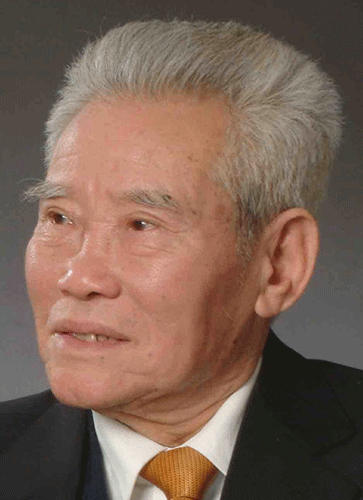Nuclear propulsion pioneer dies at 96
By ZHAO LEI | China Daily | Updated: 2021-03-24 08:58

Peng Shilu, who died in Beijing on Monday at the age of 96, played an indispensable role in developing and building China's first nuclear submarines, an industry expert said.
Peng was known for his dedication to his missions and China's nuclear submarine cause as well as his sense of responsibility, said Zhang Jinlan, chief researcher of nuclear submarines at China State Shipbuilding Corp.
He said designers and engineers in the nation's shipbuilding industry should learn from the perseverance and devotion of Peng and his peers.
"The biggest difference between conventional submarines and nuclear-powered ones lies in their propulsion systems," Zhang said on Tuesday. "When the nuclear submarine project was opened, Chinese engineers possessed expertise in conventional propulsion systems but knew nothing about nuclear ones.
"They had to explore this highly sophisticated field on their own and Peng was the leader and pioneer in research and development of nuclear propulsion."
Born in November 1925 in Haifeng, Guangdong province, Peng was the second son of a family devoted to the revolution led by the Communist Party of China. His mother was killed by Kuomintang authorities when he was 2 years old. His father, a renowned revolutionary leader, was killed by the KMT a year later.
Raised by dozens of families entrusted with that task by the CPC, Peng was sent to Yan'an, the center of the Chinese revolution, in Shaanxi province in late 1940.He worked in several civilian posts there and joined the CPC in 1945.
In 1951, he was selected to study chemical engineering in the Soviet Union and was later requested to shift his major to nuclear propulsion.
After Peng graduated and returned to China in 1958, he started his career in the nuclear industry. In the early 1960s, the young scientist was assigned to take part in the design work for the nuclear propulsion system for China's first nuclear submarines.
He led the development and construction of a land-based experimental reactor and then the reactors installed in the nation's first nuclear submarines.
During his career, Peng held a variety of high-ranking titles including chief designer of China's nuclear submarine program and vice-minister of the ministries of shipbuilding, water resources and electricity.
In 1994, he was elected as an academician of the Chinese Academy of Engineering, one of the top academic bodies in China.
























